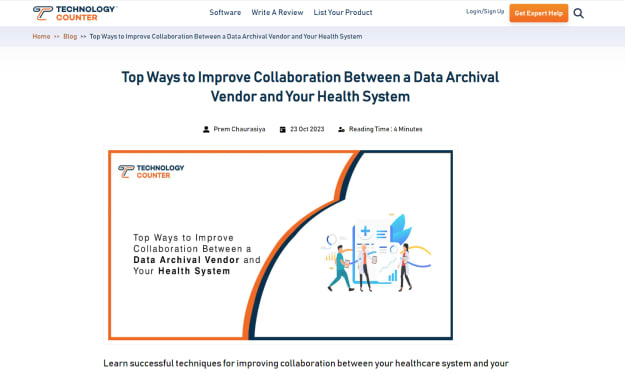Ethics in Education: GPT-4's Approach to Fairness and Inclusion
Discover how GPT-4, an advanced language model, approaches ethics, fairness, and inclusion in education, promoting a more inclusive learning environment.

Ethics in Education: GPT-4's Approach to Fairness and Inclusion
Introduction
Education serves as the foundation for personal and societal growth. In this digital age, advancements in technology, such as GPT-4, have brought new opportunities and challenges to the realm of education. Alongside this progress, ethical considerations have become paramount. This article explores how GPT-4, a cutting-edge language model, approaches ethics, fairness, and inclusion in the field of education.
Understanding Ethics in Education
Ethics in education refers to the principles and standards that guide the moral conduct of individuals involved in the educational process. It involves ensuring fairness, honesty, respect, and equal opportunities for all learners. Maintaining ethics in education can be challenging due to the diverse needs and perspectives of students, the influence of power dynamics, and the complexity of decision-making. However, technology can play a significant role in assisting ethical decision-making processes.
GPT-4: An Overview
GPT-4, short for "Generative Pre-trained Transformer 4," represents the latest advancement in natural language processing. It possesses remarkable capabilities in understanding and generating human-like text, making it a valuable tool in various domains, including education. GPT-4 utilizes a vast amount of training data to learn patterns, understand context, and generate coherent responses.
Fairness and Inclusion in GPT-4
Developers of GPT-4 recognize the importance of fairness and inclusion in its design and deployment. Ethical considerations are at the forefront of GPT-4's development to ensure that biases and discriminatory elements are mitigated. By incorporating diverse training data and addressing biases within the model's architecture, GPT-4 aims to provide fair and inclusive responses to user queries.
GPT-4's Approach to Fairness
To enhance fairness, GPT-4 employs a multifaceted approach. It leverages vast and diverse training data, including perspectives from various cultural, social, and linguistic backgrounds. By continuously evaluating and refining its algorithms, GPT-4 strives to minimize biases and promote equity in the generated content.
GPT-4's Approach to Inclusion
Inclusivity is another crucial aspect of GPT-4's design. The developers recognize the importance of accommodating different perspectives and ensuring the system understands and respects cultural and social nuances. User feedback plays a vital role in identifying areas for improvement, enabling GPT-4 to enhance its understanding and generate content that is sensitive and inclusive.
Implications for Education
Integrating GPT-4 into educational settings holds great potential for enhancing learning experiences. GPT-4 can assist students with personalized tutoring, provide instant feedback, and offer a wealth of knowledge across various subjects. However, educators must be mindful of ethical considerations, such as ensuring a balanced blend of automated assistance and human guidance, maintaining student privacy, and addressing potential biases that may emerge.
Challenges and Criticisms
While GPT-4 brings exciting possibilities, there are challenges and criticisms that must be addressed. Concerns surrounding algorithmic decision-making and the potential for perpetuating biases persist. Striking a balance between automation and human judgment is essential to avoid over-reliance on AI systems. Additionally, ongoing discussions and rigorous scrutiny are necessary to identify and rectify any unintended consequences.
Conclusion
GPT-4 represents a significant step forward in incorporating ethics, fairness, and inclusion into the field of education. Its approach to mitigating biases, fostering inclusivity, and considering user feedback showcases a commitment to creating a supportive learning environment. However, ongoing ethical discussions, critical evaluations, and informed decision-making will be pivotal in ensuring that the integration of GPT-4 in education is beneficial and aligns with ethical principles.
FAQs
How does GPT-4 address algorithmic bias?
GPT-4 addresses algorithmic bias through diverse training data and continuous algorithm refinement, striving to minimize biases and promote fairness.
Can GPT-4 completely eliminate biases?
While GPT-4 aims to mitigate biases, complete elimination is challenging. Ongoing evaluations and improvements are necessary to reduce biases to the greatest extent possible.
What steps are taken to ensure user privacy?
GPT-4 prioritizes user privacy by adhering to strict data protection measures, anonymizing user data, and allowing users to control the data shared with the system.
How can educators prepare for GPT-4 integration?
Educators can prepare for GPT-4 integration by staying informed about its capabilities, understanding its limitations, and engaging in ethical discussions within educational communities.
Will GPT-4 replace human teachers?
GPT-4 complements human teachers by providing support and resources. Its integration aims to enhance educational experiences, but the irreplaceable role of human teachers remains significant.
About the Creator
Vasudhan V.H
Hello and welcome! I am a tech enthusiast with a passion for all things technology. From the latest gadgets to groundbreaking advancements, I am constantly exploring and learning about the world of tech.






Comments
There are no comments for this story
Be the first to respond and start the conversation.